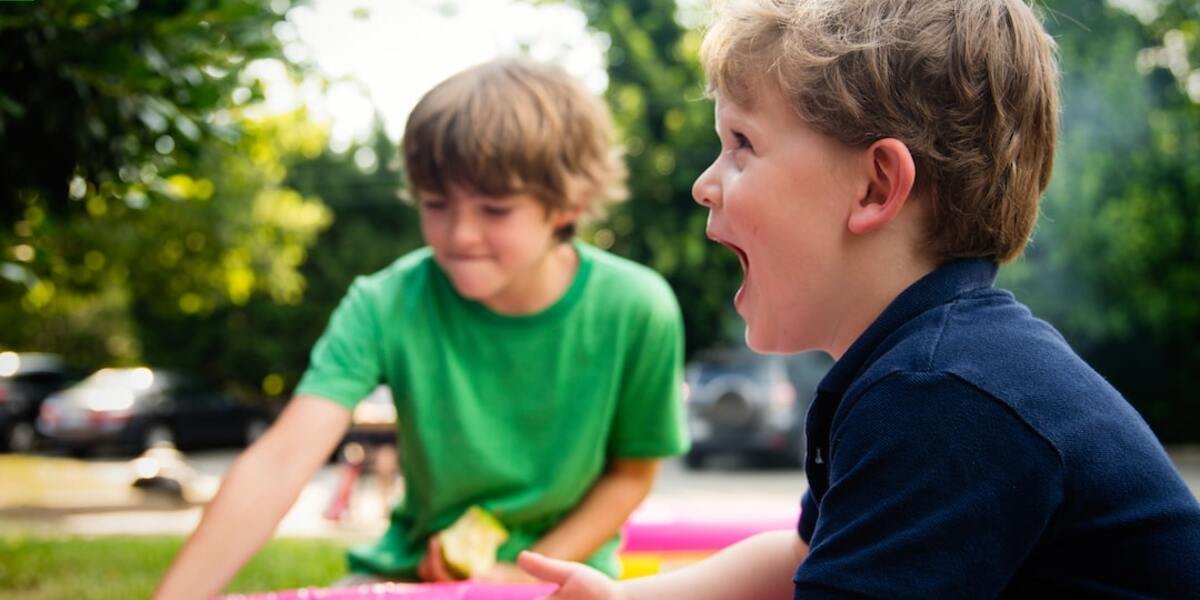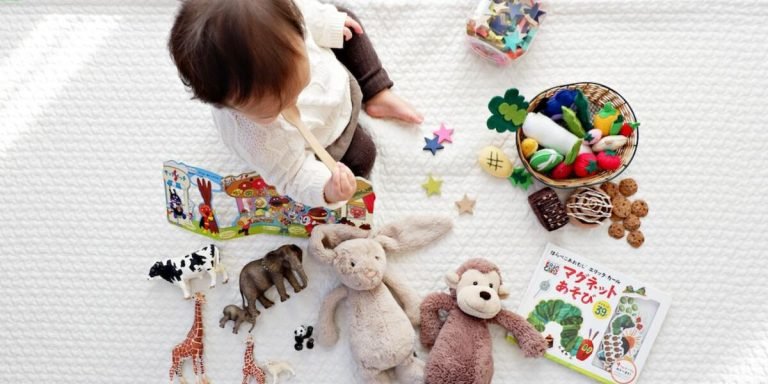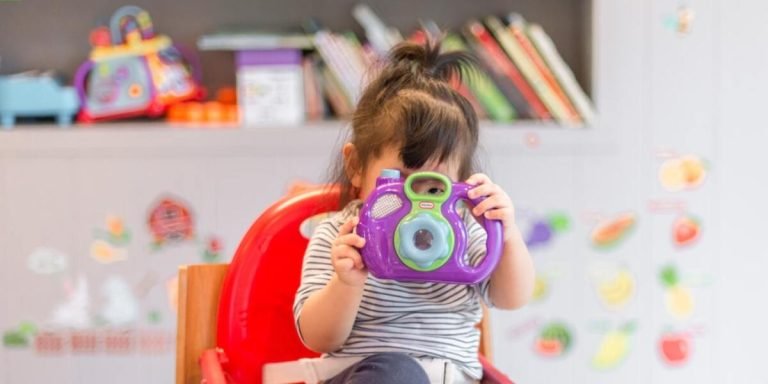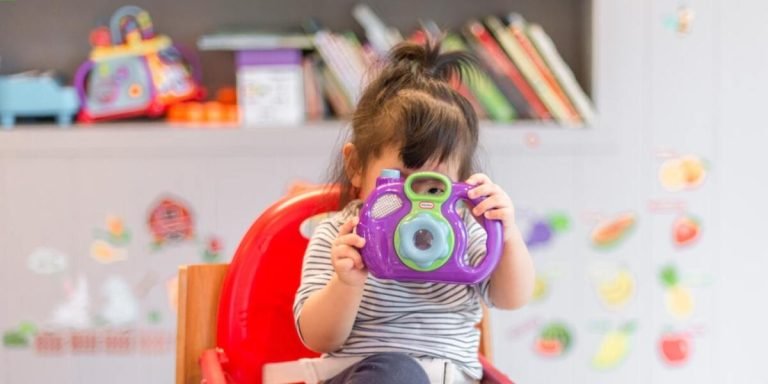Preschool Age: Exploring fundamental concepts in early childhood education
Understanding the development and learning process during preschool age is an essential factor in shaping a child’s future. This stage, often considered as early childhood education, plays a crucial role in ingraining vital socialization skills, cognitive abilities, and motor coordination among other values. Appreciating the nuances of this phase can offer valuable insights for parents and educators alike.
This article aims to explore these fundamental concepts surrounding preschool-age children’s education. We will delve deep into various aspects such as teaching methodologies best suited for youngsters’ unique needs, understanding their mental capabilities at different stages of growth; all with scientifically-backed explanations that demystify how young minds soak up knowledge like sponges.
Did you know?
Despite their seemingly simplistic play, preschoolers are rapidly developing foundational skills in literacy and numeracy. According to a study by the National Institute for Early Education Research (NIEER), children who attended pre-K were found to have a 31% improvement in letter recognition compared to those who didn’t.
The Developmental Milestones of Preschool Age Children
Preschool age, often defined as the period between 3 and 5 years old, is an essential stage in a child’s life. This phase signifies a crucial transition from toddlerhood to formal schooling. It incorporates considerable growth of cognitive skills, language use, fine motor abilities and social development among children.
Understanding these developmental milestones can assist parents and educators alike in promoting positive experiences for preschool age kids.
One fundamental area of focus at this stage is cognitive or intellectual growth which typically becomes significant during the preschool era. Children start demonstrating remarkable curiosity about their surroundings and develop improved problem-solving techniques that allow them more control over their world. Their memory witnesses substantial enhancement while they also begin to understand concepts such as time relationships (yesterday-today-tomorrow), cause-effect notions or differences-similarities comparisons.
Another prominent aspect involves improvement on socio-emotional grounds where children become aware of other individuals around them along with developing self-awareness; enabling emotional intelligence though encouraging empathy towards others’ feelings could be quite beneficial here . A key emphasis should also be placed on strengthening communication ability – whether it’s expressing themselves tactfully , listening attentively or even understanding non-verbal cues effectively – for success not only within classroom but beyond too.
Finally yet importantly are physical developments commencing with enhancements in gross motor skills like running smoothly & navigating obstacles easily etc.; followed by fines-n-motor-skills improvements aiding activities needing precision such as writing , drawing etc..
Understanding Cognitive and Language Growth
Preschool age, a vital phase in early childhood education, connects to the continuous cognitive and language growth individuals. It’s during this period that children begin to think more logically about their world—grasping abstract concepts such as time or shapes—and develop verbal proficiency.
In terms of cognitive development, preschoolers are typically seen exploring cause-and-effect relationships between objects and ideas—an evolution from babies’ simple sensory exploration habits. This mental leap allows them to understand how different elements can interact with each other: for instance, if you knock down one domino piece in a line-up, the rest will follow suit—a clear example of causality.
Furthermore, another significant milestone achieved around this stage is improved memory retention skills which allow kids not only remember things long-term but also possess an increased ability to focus on specific tasks without getting easily distracted.
Meanwhile concerning language development at preschool age—it progresses immensely too! By now most youngsters acquire extensive vocabulary stocked up by thousands words used daily basis; become experts using complex sentences filled with advanced grammar rules (like past tense); start asking lots questions curiosity nature surrounding environments while probing into finer details stories underlying meanings messages behind fairy tales fables read aloud storytime sessions nursery schools kindergarten classes alike!
Social-Emotional Skills: What to Expect
Preschool age is a crucial period for the development of social-emotional skills in children. These abilities not only form an essential part of their personality but also pave the way for healthy relationships and successful academic endeavours.
During preschool, kids learn to identify, express, and manage emotions – all primary facets of emotional competency. For instance, they become adept at recognizing happy or sad faces and can manifest these feelings accurately themselves too. Preschoolers start developing empathy – understanding how other people feel even if they’re experiencing different emotions.
Another remarkable milestone during this phase is self-awareness growth: children begin distinguishing themselves from others concerning preferences, abilities or physical characteristics. They gain a better perception about things they are good at doing which bolsters their confidence levels.
Let’s look into peer interaction progression next that happens around this age frame- Children move beyond parallel play (where each child does his/her own thing) towards more interactive forms be it sharing crayons while colouring togetheror taking turns on swings –truly embracing collaborative behavior!
Lastly yet importantly comes impulse control improvement marking another core element under socio-emotional proficiency: Kids improve patience exhibiting enhanced capacity waiting them turn instead demanding immediate attention always .
Creating a Stimulating Learning Environment for Preschoolers
Creating a stimulating learning environment for preschoolers is of utmost importance, given that this stage marks the beginning of their formal education journey. In 2023, as we continue to deal with digital natives or children born into an era where technology use is widespread, it is crucial to strike a balance between traditional and modern teaching methods at the preschool age.
The basis for early childhood education lies in providing opportunities for hands-on exploration and social interaction. At this tender age, children are naturally curious beings who learn best through experiences tailor-made according to their interests and abilities. Investing time in creating play corners can significantly stimulate cognitive development while fostering creativity among kids.
However, digitization’s impact on education cannot be overlooked even when catering to toddlers’ needs at preschools today. Introducing them responsibly towards educational apps or interactive online platforms must be undertaken by educators conscientiously since these tools go beyond just screen-time activities; they are a pathway towards lifelong learning skills such as problem-solving or coding which will become paramount in future years.
Despite our increasingly tech-oriented world though let us not forget the value that simple manipulatives like blocks or storytelling bring about during these formative years! These timeless techniques foster basic math concepts and language proficiency respectively – key prerequisites before stepping onto more complex schoolwork ahead.
Designing Spaces That Encourage Curiosity and Exploration
In the realm of early childhood education, a well-designed environment works as an invisible teacher. For preschool age children, spaces that encourage curiosity and exploration can significantly enhance learning experiences.
The first step towards creating such spaces involves understanding your child’s perspective. Get down to their level – literally! It might mean sitting on the floor or leaning close to observe how they interact with their surroundings.
This enables you to see what attracts them, which areas seem comfortable,and where modifications are needed.
Next comes space organization. Divide space into defined activity zones: reading corner for quiet times; block area for indulging in constructive play; art station for sparking imagination through colors and craft materials; sensory table filled with diverse tactile objects like sand, water beads etc.; cozy nook at one side nurturing restful moments amidst busy routines.
Each of these sections should be easily accessible and visible from all angles so kids know exactly where everything is located – promoting independence while limiting chaos!
Equally significant is incorporating natural elements within these settings given the proven benefits nature has on cognitive functioning among little ones.
Throw open those windows every morning letting sunlight stream through or get potted plants indoor sprucing up corners of rooms besides purifying air naturally.
Selecting Educational Materials Suitable for Preschool Age
When it comes to early childhood education, selecting the right educational materials for preschool age children is of utmost importance. In an effort to create a stimulating learning environment, understand that every piece on the shelf plays a vital role in shaping their cognitive and emotional growth.
Start by understanding your child’s individual needs. Note their interests and observe how they interact with different types of materials – not all kids are alike! It’s crucial to choose items that cater specifically to meeting those unique developmental stages most prevalent at this tender age.
Next up – avoid complexity. Materials should be straightforward enough for young minds grasp without overwhelming them. Choosing overly complicated toys or books may end up causing frustration instead of fostering learning experience which can discourage future exploration attempts.
A bright way forward? Opting for multi-sensory resources! They’re remarkably effective tools providing opportunity utilizing sight, touch sound simultaneously hence enhancing overall sensory development while reinforcing core concepts like shapes colors numbers etcetera!
Always prioritize safety when selecting products, particularly with regard to size, chooking hazards, and sharp edges.
Strategies for Effective Communication with Preschool Age Learners
Understanding and effectively communicating with preschool-aged learners is a cornerstone of early childhood education. In this digital age, where attention spans are increasingly short, it becomes essential to adopt versatile strategies that cater to the individual needs of these young minds.
One of the crucial aspects when dealing with children in their preschool years (ages 3-5) is understanding that they communicate differently than older kids or adults do. They may not have acquired an extensive vocabulary yet, but through expressions, gestures, play activities and artistry such as drawing or painting; they express emotions and ideas just like anyone else. Recognizing these unvoiced statements often lead towards effective communication which facilitates better learning outcomes.
Another vital strategy lies within maintaining consistent routines while also being creative enough to keep things engaging for these curious beings. Predictable structures lend comfort whilst innovative methods can be instrumental in keeping them interested throughout different activities – thus creating an ideal environment for both teaching new concepts and fortifying pre-existing knowledge about their burgeoning world around them.
Moreover incorporating positive reinforcement techniques gives rise to enhanced self-esteem amongst youngsters thereby increasing willingness towards participation in academic pursuits along with fostering critical social skills needed later on during elementary schooling stages.
Techniques in Simplifying Complex Ideas for Young Minds
In today’s fast-paced educational landscape, simplifying complex ideas for preschool age learners is of significant importance. Here are some techniques that can assist educators and parents in this endeavor.
1. Use Simple Language: Eliminate jargon and use simple words when explaining to a preschooler. Remember, their vocabularies are still developing.
2. Utilize Visual Aids: It is easier for children at this stage to understand concepts if they can see them visually represented such as through pictures or charts – basically anything colorful and engaging grabs attention.
3. Tell Stories: Narrating stories corresponding with the subject matter helps create mental images aiding comprehension of more complex topics while making learning fun!
6.Use Games And Play-Based Learning : Transforming difficult subjects into games promotes interest and curiosity enhancing understanding .
Fostering Active Listening and Expression in Early Childhood
Active listening and effective expression in preschool age kids is a crucial part of early childhood education. In 2023, educators have identified several strategies to promote these skills.
Firstly, it’s important to create an environment that encourages curiosity and communication. This can be done with simple activities like reading aloud or playing interactive games which stimulate dialogue.
Additionally, encouraging children’s questions stimulates two-way interaction thus strengthening both speech and comprehension faculties simultaneously – hence promoting active listening effectively.
Preschool teachers might tap into various crafts enabling expressive arts value sharing thoughts via creative mediums could prove beneficial too! Painting sessions combined storytelling brisk prompts learning processes further while enhancing articulation abilities significantly alike!
Lastly praising effort not just end results ensuring positive reinforcement integral element excursion towards improved communication capacities among young learners worth celebrating individual progress milestones importantly.
Conclusion
In the ever-evolving landscape of early childhood education, understanding and engaging with kids during their ‘preschool age’ has never been more critical. We’ve delved into several fundamental concepts to equip you with a blend of theoretical knowledge and practical insights that can help mold these young minds.
We invite you to continue this enriching journey on our platform where we strive to guide parents, educators, and all who partake in child development. Keep exploring our website for comprehensive resources that provide unparalleled support in your endeavor towards shaping tomorrow’s leaders through quality early education today.







